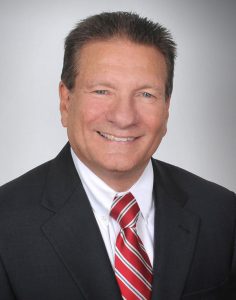Florida Law Weekly – Nov. 27, 2020
Shanekopp v. State of Florida – 3rd DCA
In this case, the Court found that the Trial Court did not abuse its discretion in allowing testimony that a person depicted in video footage was the defendant, where the video was of poor quality and the witness was in a better position than the jury to identify the defendant. The video showed a person wearing a white shirt, dark pants, and red backpack approaching the vehicle, but the identity of the individual was not ascertainable because of the poor quality of the video. Prior to the witness’s testimony identifying the defendant, the State elicited testimony that the witness had previously interacted with the defendant for a lengthy period in person, had seen the defendant on video, and had viewed the footage at issue several times before trial. The Court found that a witness may testify as to the identification of a person depicted in photographs or video when the witness is in a better position than the jurors to make that identification.
Glover v. Vasallo – 3rd DCA
In this case, the Court held that the Trial Court departed from the essential requirements of the law by severing a replevin count from other counts of the complaint where factual and legal issues underlying the severed count were inextricably intertwined. Here, the Appellant owned a boat and contracted through a company to sell it. That company illegally sold the boat to a third party who would not relinquish the boat, and the Appellant filed a complaint containing one count of replevin and two counts of negligence against the contracted company. Appellee moved to sever the replevin count against him, and the Trial Court granted the motion. The Third District quashed the order on appeal, finding that the claims involved interrelated factual and legal issues.
J.B. v. State of Florida – 5th DCA
In a case addressing the Baker Act, the Court reversed an order of involuntary placement entered pursuant to Fla. Stat. 394.467 because the State failed to present adequate evidence linking the Appellant’s mental health condition, his failure to take medications or his issues managing his hygiene to a real and present threat of substantial harm to his well-being. Further, the Court stated that testimony about the Appellant not being able to survive on his own was conclusory. The State claimed that the Appellant was a chronic mental health patient and would decompensate if released from the facility because he would stop taking treatment medication. The Court noted that “the mere fact that an individual might suffer from a mental illness is not sufficient standing alone to justify involuntary commitment.” Further, the Court noted that “the need for treatment and medication and the refusal to take medication despite a deteriorating mental are insufficient to meet the states burden.” Lastly, the Court held that “conclusory testimony, unsubstantiated by facts in evidence is insufficient to satisfy the statutory criteria by the clear and convincing evidence standard.”





 litigation and appeals in all Florida state and federal courts.
litigation and appeals in all Florida state and federal courts.